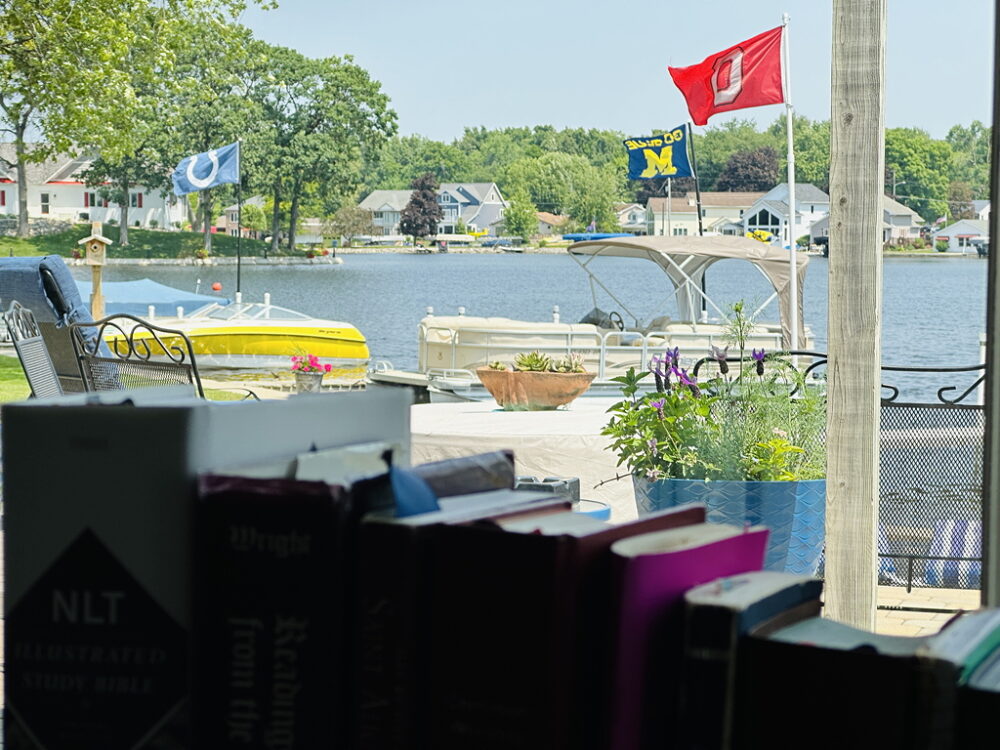The season of Lent with its emphasis on self-examination, penitence, self-denial, study, and preparation for Easter is quickly approaching. One of the Lenten disciplines I commend to you this year is fasting. But there is a lot of misunderstanding about fasting and so I offer you some great insights from Dr. Scot McKnight’s excellent book, Fasting: The Ancient Practices. Hear him now:
Fasting is a person’s whole-body, natural response to life’s sacred moments (p. xii).
St. Athanasius, one of the architects of Christian orthodoxy, knew the formative powers of the sacred rhythms of the church calendar. That calendar weaved in and out of mourning over sin (fasting) and celebrating the good grace of God (feasting). “Sometimes,” he says of the church calendar, “the call is made to fasting, and sometimes to a feast [like every Sunday when we celebrate our Lord’s resurrection].”
…St. Augustine took fasting into a another area of formation. One way for Christians to find victory over temptation, St. Augustine reminded his readers, was to fast. Why? Because it is sometimes necessary to check the delight of the flesh in respect to licit [not forbidden or lawful] pleasures in order to keep it from yielding to illicit pleasures.
These two themes—fasting as a sacred rhythm in the church calendar and fasting as a discipline against sinful desires—are perhaps the most important themes of fasting in the history of Christian thinking (p. xv).
Dr. McKnight offers his own excellent definition of fasting:
Fasting is the natural, inevitable response of a person to a grievous sacred moment in life (e.g., death, sin, fear, threats, needs, sickness). Does it bring results? Yes, but that’s not the point of fasting. Those who fasted in response to grievous sacred moments frequently—but not always!—received results, like answered prayer. But focusing on the results causes us to misunderstand fasting entirely.
Which leads us now to see fasting in an A —> B —> C framework. If one wants to see the full Christian understanding of fasting, one must begin with A, the grievous sacred moment (e.g., death, sin, fear, threats, needs, sickness). That sacred moment generates a response (B), in this case fasting. Only then, only when the sacred moment is given its full power, does the response of fasting generate the results (C)—and then not always, if truth be told. [So, e.g., in response to sin we fast and can receive forgiveness.]
What we are getting at here is very important: fasting isn’t a manipulative tool that guarantees results. The focus in our deepest Christian tradition is not moving from column B to column C but the A —> B movement. Fasting is a response to a sacred moment, not an instrument designed to get desired results. The focus in the Christian tradition is not “if you fast you will get,” but “when this happens, God’s people fast [emphasis added]” (pp. xviii-xix).
Dr. McKnight develops these ideas in the subsequent chapters of his book and I wholeheartedly commend it to you for your edification. As always, it is critically important for us as Christians to know why we do what we do. This pertains to worship and the various spiritual disciplines, fasting included. Therefore, this Lent I encourage you to fast regularly as a means to help you become a more Christ-oriented person and to live a cruciform (cross-shaped) life.
To purchase Dr. McKnight’s book on fasting, click this link.
![]()


 Prayer is the offering in spirit that has done away with the sacrifices of old. “What good do I receive from the multiplicity of your sacrifices?” asks God. “I have had enough of burnt offerings of rams, and I do not want the fat of lambs and the blood of bulls and goats. Who has asked for these from your hands?”
Prayer is the offering in spirit that has done away with the sacrifices of old. “What good do I receive from the multiplicity of your sacrifices?” asks God. “I have had enough of burnt offerings of rams, and I do not want the fat of lambs and the blood of bulls and goats. Who has asked for these from your hands?” 
You must be logged in to post a comment.